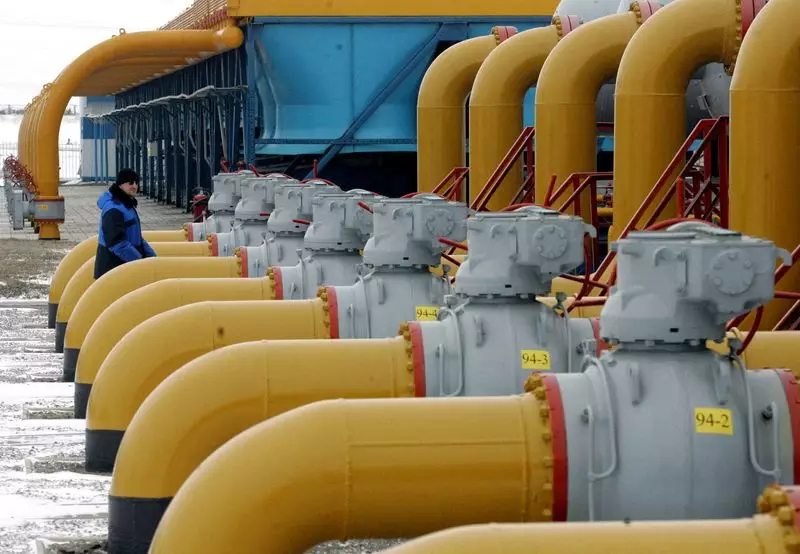The cessation of Russian natural gas exports through its traditional Soviet-era pipelines in Ukraine marks a significant turning point in European energy dynamics. In the early hours of January 1st, 2025, a transit deal that had been a lifeline for Russian gas to Europe expired, bringing an end to a long-standing and contentious relationship shaped largely by geopolitical tensions. This rupture can be traced back to 2014, following Russia’s annexation of Crimea, which escalated hostilities between Moscow and Kyiv and led Ukraine to cut off gas purchases from Russia in 2015. The full-scale invasion of Ukraine by Russia in February 2022 further solidified the breach, casting a long shadow over energy negotiations and cooperation between the two nations.
The halting of gas transit not only represents a historical discord but also has deep economic ramifications for both Ukraine and Russia. Ukraine’s Energy Minister, German Galushchenko, heralded the suspension as a “historic event,” pointing to the broader implications for Russia’s position in the European energy market. Indeed, the absence of gas transit signifies a staggering economic loss for both nations: Ukraine projects a loss of approximately $800 million annually from transit fees, while Gazprom, Russia’s state-owned gas company, stands to lose around $5 billion in potential gas sales annually. This economic void signifies more than just immediate financial losses; it represents a systemic shift in energy relationships that may hinder Russia’s influence in Europe for years to come.
The European Union has been accelerating efforts to wean itself off Russian energy, a strategy that gained urgency following the onset of the war in Ukraine. The reliance on Russian gas has dramatically declined as countries pivoted to alternative sources and reinforced their energy security through diversification. Countries such as Slovakia and Austria, previously reliant on Russian gas flowing through Ukraine, have proactively sought alternative suppliers, thus illustrating a broader commitment within the EU to reduce dependency on Russian energy.
Furthermore, the repercussions of the cessation have been felt most acutely in neighboring countries. Moldova, having previously been a consumer of Russian gas, has announced stringent measures to cut its gas consumption by a third in light of reduced supplies. This move reflects the cascading effects of the energy crisis that envelops the region as nations scramble to adapt to a rapidly shifting energy landscape.
While Gazprom continues to supply gas via the TurkStream pipeline beneath the Black Sea, which serves both Turkey and Central European nations, the overall export landscape for Russia has diminished significantly. The TurkStream pipeline’s capacity serves as a partial outlet for Russia’s reduced gas exports, yet cannot compensate for the historical volume exported through Ukraine. Additionally, critical transit routes such as the Yamal-Europe pipeline and the Nord Stream have been compromised, limiting Gazprom’s ability to regain earlier export levels. The dramatic decline from a peak of 201 billion cubic meters (bcm) in gas supplied to Europe in 2018 to merely 15 bcm in 2023 via Ukraine epitomizes this seismic shift.
As the energy landscape continues to evolve post-Ukraine conflict, Russia’s energy strategy must adapt to a new reality where it can no longer operate with the same level of influence. The European Union is likely to remain committed to diversifying its energy sources, pursuing renewables, and forming new partnerships that enhance energy independence. The implications of this energy pivot will extend well beyond immediate economic impacts, suggesting a future marked by altered geopolitical alignments and priorities in international energy policy.
The suspension of Russian gas transit via Ukraine signifies more than just the end of a transactional relationship; it heralds a transformative period in European energy dynamics. The implications of a shifting energy landscape are vast, affecting economic, political, and social domains across the continent and beyond. As Europe seeks to navigate the challenges posed by diminished Russian energy supplies, it remains crucial to observe how these adjustments will reshape the global energy market and influence the geopolitical climate in the years to come.

